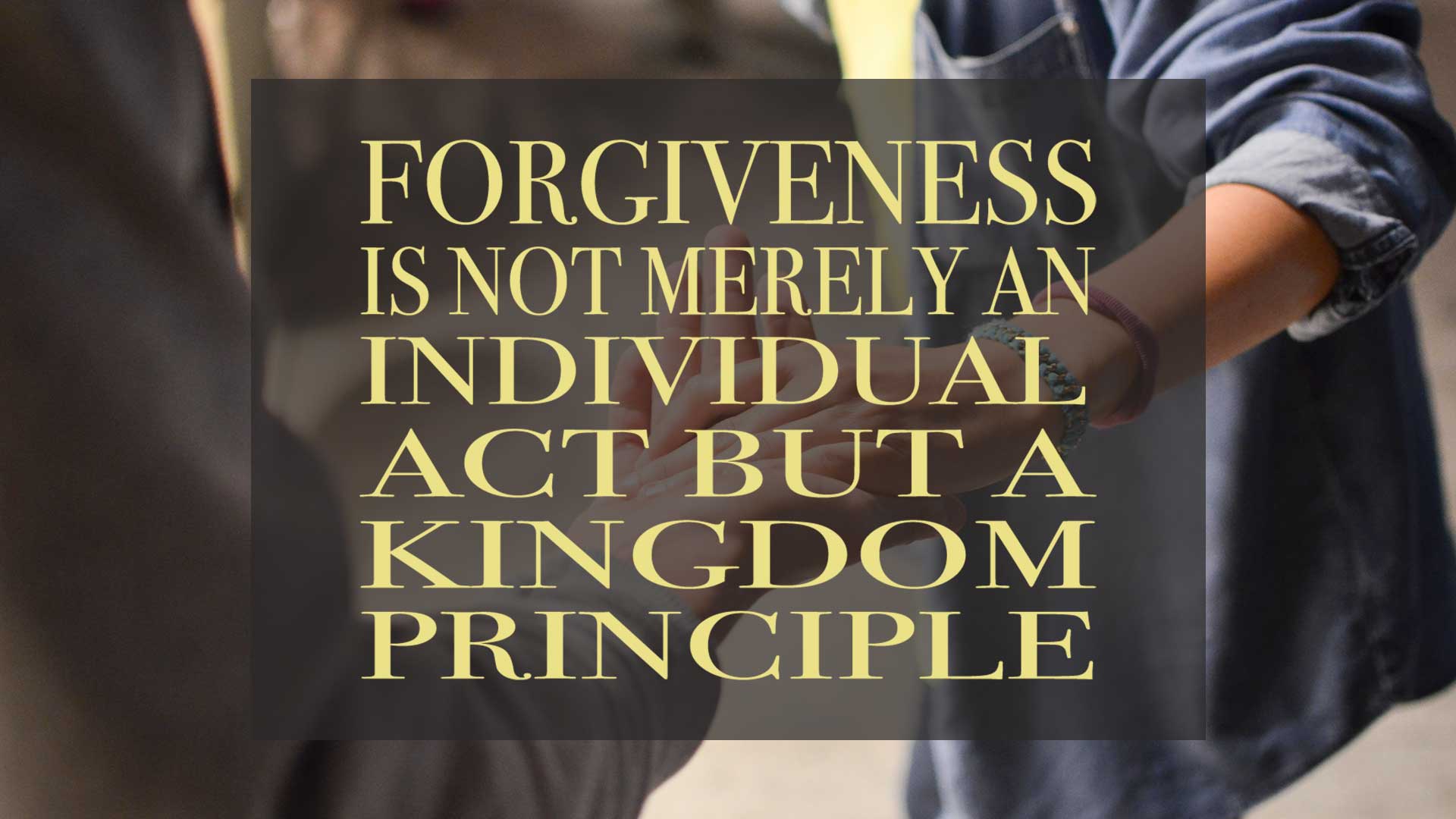Forgiveness: Embracing and Extending

Forgiveness lies at the very cornerstone of the Christian faith. Through the unconditional love and forgiveness God offers us through Jesus Christ, we experience liberation from the shackles of sin. As believers, we need to understand that forgiveness is not just an option but a command from God and an integral aspect of our spiritual growth that reflects Christ’s character.
Equally important is the connection between receiving forgiveness and extending it to others. Our acceptance and understanding of God’s forgiveness empower us to forgive others unconditionally. Understanding the measure of forgiveness, we have received is pivotal in this journey. In Luke 7:47, Jesus emphasizes the strong correlation between love and forgiveness by explaining that those forgiven much love much, whereas those forgiven little love little. This reflects the impact of the magnitude of forgiveness on our capacity to love. The more we grasp the depth of His forgiveness, the more our hearts are filled with love for Him and others. When we recognize the gravity of our sins and the abundant forgiveness we have received, our hearts overflow with gratitude, fostering a desire to serve and love God earnestly.
However, condemnation can often pose a barrier to experiencing forgiveness. Condemnation, with its destructive nature, creates a rift between us and the loving grace of God and prevents us from forgiving others. It is imperative to recognize that condemnation can manifest as self-hatred – a form of denial of God’s forgiveness that leaves us ensnared in guilt and hinders us from living a whole and free life in Christ. Our capacity to love and forgive others is greatly diminished when shrouded with condemnation.
In contrast, forgiveness is not merely an individual act but a Kingdom principle. Jesus, in his teachings, positions forgiveness in the context of God’s Kingdom. In Matthew 7:7-14, He encourages us to seek, knock, and find the ways of the Kingdom, and one of these ways is forgiveness. It is central to our relationship with God, and we are reconciled to Him through God’s forgiveness. As we forgive others, we reflect His divine nature. Furthermore, the scripture teaches us that the measure with which we judge others is the measure with which we will be judged. Forgiving others releases them from the bondage of judgment and in turn, releases us.

When we read this story today, we are faced with the powerful reality that this was not meant for the disciples only; it was written as both instruction and a warning for all of would also follow Jesus. Like the disciples In Matthew’s gospel, we too can be overcome with weariness and fatigue when faced with challenges. The weight of distress and anxiety can weigh us down so deeply that disengaging in prayer and everything else can be very tempting. The story in Matthew teaches us that in moments of difficulty and trial, we need to overcome the temptation of our human weaknesses. Instead of choosing to pull back, we need to decide faith to draw near to God even more diligently so that we do not miss out on what God is about to do.
Whether it is something we are facing in our personal lives or the lives of others, one thing is clear: we need to watch and pray. We also need to realize that it is tempting to enter into a slumber of disconnect in this time of struggle in our nation and our world. With the abundance of entertainment and media, we can drift away into a deeply unspiritual place where prayer is foreign and uninteresting. However, in times like these, we need to remember what Jesus asked His disciples; “Could you not keep watch with Me for one hour?” In other words, could you not set aside your own preoccupations and desires to focus on what really matters? Even for one hour? By breaking the call to prayer down to something as simple as being able to pray for one hour, instead of something as daunting as several hours or days, Jesus’s exhortation becomes even more reasonable and convicting.
It is the power of these words that drive many Christians worldwide to have a focused prayer life. The call to “pray for one hour” has been taught extensively in church history and is still valid today. As a local church, we believe at Bread of Life that we should resist the temptation of weariness and distraction when it comes to prayer. The willingness of our spirit and commitment to God needs to be stronger than the weakness of our flesh. For this reason, every Monday evening, we have prayer school. We believe that God’s power through prayer can change our lives, families, friends, and even the world if we would be willing to pray. We invite you to find one hour in your schedule to join us!
